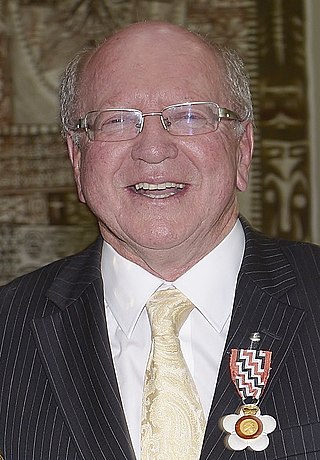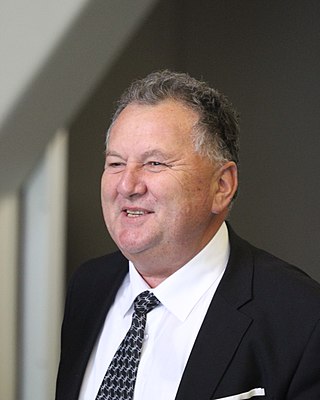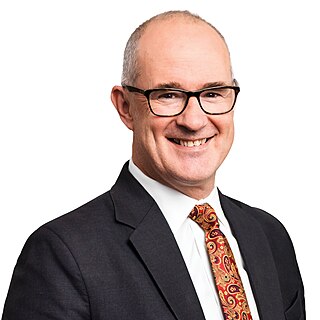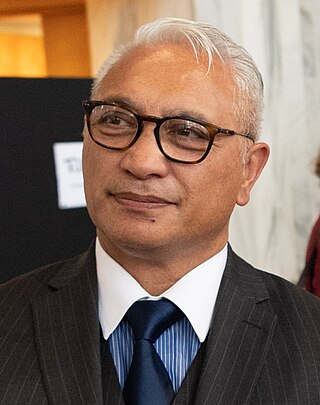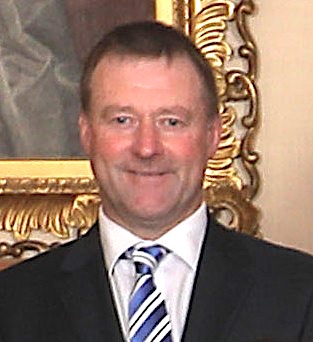Sir Bill English | |||||||||||||||||||||||||||
|---|---|---|---|---|---|---|---|---|---|---|---|---|---|---|---|---|---|---|---|---|---|---|---|---|---|---|---|
 English in 2018 | |||||||||||||||||||||||||||
| 39th Prime Minister of New Zealand | |||||||||||||||||||||||||||
| In office 12 December 2016 –26 October 2017 | |||||||||||||||||||||||||||
| Monarch | Elizabeth II | ||||||||||||||||||||||||||
| Governor-General | Patsy Reddy | ||||||||||||||||||||||||||
| Deputy | Paula Bennett | ||||||||||||||||||||||||||
| Preceded by | John Key | ||||||||||||||||||||||||||
| Succeeded by | Jacinda Ardern | ||||||||||||||||||||||||||
| 29th Leader of the Opposition | |||||||||||||||||||||||||||
| In office 26 October 2017 –27 February 2018 | |||||||||||||||||||||||||||
| Prime Minister | Jacinda Ardern | ||||||||||||||||||||||||||
| Deputy | Paula Bennett | ||||||||||||||||||||||||||
| Preceded by | Jacinda Ardern | ||||||||||||||||||||||||||
| Succeeded by | Simon Bridges | ||||||||||||||||||||||||||
| In office 8 October 2001 –28 October 2003 | |||||||||||||||||||||||||||
| Prime Minister | Helen Clark | ||||||||||||||||||||||||||
| Deputy | Roger Sowry | ||||||||||||||||||||||||||
| Preceded by | Jenny Shipley | ||||||||||||||||||||||||||
| Succeeded by | Don Brash | ||||||||||||||||||||||||||
| 9th Leader of the National Party | |||||||||||||||||||||||||||
| In office 12 December 2016 –27 February 2018 | |||||||||||||||||||||||||||
| Deputy | Paula Bennett | ||||||||||||||||||||||||||
| Preceded by | John Key | ||||||||||||||||||||||||||
| Succeeded by | Simon Bridges | ||||||||||||||||||||||||||
| In office 8 October 2001 –28 October 2003 | |||||||||||||||||||||||||||
| Deputy | Roger Sowry | ||||||||||||||||||||||||||
| Preceded by | Jenny Shipley | ||||||||||||||||||||||||||
| Succeeded by | Don Brash | ||||||||||||||||||||||||||
| 17th Deputy Prime Minister of New Zealand | |||||||||||||||||||||||||||
| In office 19 November 2008 –12 December 2016 | |||||||||||||||||||||||||||
| Prime Minister | John Key | ||||||||||||||||||||||||||
| Preceded by | Michael Cullen | ||||||||||||||||||||||||||
| Succeeded by | Paula Bennett | ||||||||||||||||||||||||||
| 39th Minister of Finance | |||||||||||||||||||||||||||
| In office 19 November 2008 –12 December 2016 | |||||||||||||||||||||||||||
| Prime Minister | John Key | ||||||||||||||||||||||||||
| Preceded by | Michael Cullen | ||||||||||||||||||||||||||
| Succeeded by | Steven Joyce | ||||||||||||||||||||||||||
| In office 31 January 1999 –22 June 1999 | |||||||||||||||||||||||||||
| Prime Minister | Jenny Shipley | ||||||||||||||||||||||||||
| Preceded by | Bill Birch | ||||||||||||||||||||||||||
| Succeeded by | Bill Birch | ||||||||||||||||||||||||||
| Deputy Leader of the National Party | |||||||||||||||||||||||||||
| In office 27 November 2006 –12 December 2016 | |||||||||||||||||||||||||||
| Leader | John Key | ||||||||||||||||||||||||||
| Preceded by | Gerry Brownlee | ||||||||||||||||||||||||||
| Succeeded by | Paula Bennett | ||||||||||||||||||||||||||
| In office 7 February 2001 –6 October 2001 | |||||||||||||||||||||||||||
| Leader | Jenny Shipley | ||||||||||||||||||||||||||
| Preceded by | Wyatt Creech | ||||||||||||||||||||||||||
| Succeeded by | Roger Sowry | ||||||||||||||||||||||||||
| 3rd Treasurer of New Zealand | |||||||||||||||||||||||||||
| In office 22 June 1999 –10 December 1999 | |||||||||||||||||||||||||||
| Prime Minister | Jenny Shipley | ||||||||||||||||||||||||||
| Preceded by | Bill Birch | ||||||||||||||||||||||||||
| Succeeded by | Michael Cullen | ||||||||||||||||||||||||||
| |||||||||||||||||||||||||||
| Personal details | |||||||||||||||||||||||||||
| Born | Simon William English 30 December 1961 Lumsden,New Zealand | ||||||||||||||||||||||||||
| Political party | National | ||||||||||||||||||||||||||
| Spouse | Mary Scanlon | ||||||||||||||||||||||||||
| Relations | Rachel Buchanan (niece) | ||||||||||||||||||||||||||
| Children | 6 | ||||||||||||||||||||||||||
| Parent(s) | Mervyn English Norah O'Brien | ||||||||||||||||||||||||||
| Alma mater | University of Otago Victoria University | ||||||||||||||||||||||||||
| Signature | | ||||||||||||||||||||||||||
| Website | Official website | ||||||||||||||||||||||||||
Sir Simon William English KNZM (born 30 December 1961) is a New Zealand former National Party politician who served as the 39th prime minister of New Zealand from 2016 to 2017. He had previously served as the 17th deputy prime minister of New Zealand and minister of finance from 2008 to 2016 under John Key and the Fifth National Government.
Contents
- Early life
- Fourth National Government (1990–1999)
- First period in cabinet (1996–1999)
- Opposition (1999–2008)
- Leader of the Opposition
- Shadow cabinet roles and deputy leader
- Fifth National Government (2008–2017)
- Deputy Prime Minister and Minister of Finance (2008–2016)
- Prime Minister (2016–2017)
- Opposition (2017–2018)
- Leader of the Opposition 2
- Post-prime ministerial career
- Political and social views
- Personal life
- Honours
- See also
- References
- External links
A farmer and public servant before entering politics,English was elected to the New Zealand Parliament in 1990 as the National Party's candidate in the Wallace electorate. He was elevated to Cabinet in 1996 and in 1999 was made minister of finance,although he served for less than a year due to his party's loss at the 1999 general election. In October 2001,English replaced Jenny Shipley as the leader of the National Party (and consequently as Leader of the Opposition). He led the party to its worst defeat at the 2002 general election,and as a consequence,in October 2003 he was replaced as leader by Don Brash.
In November 2006,after Brash's resignation,English became deputy leader under John Key. After National's victory at the 2008 general election,he became deputy prime minister and was also made minister of finance for the second time. Under English's direction New Zealand's economy maintained steady growth during National's three terms of government. He became a list-only MP after stepping down as an electorate MP at the 2014 general election.
John Key resigned as leader of the National Party and prime minister in December 2016. English won the resulting leadership election unopposed and was sworn in as prime minister on 12 December 2016. His tenure was only ten months,and included a three-month election campaign. In the 2017 general election,National won the largest number of seats but fell short of a majority. The parties holding the balance of power declined to support the existing government,and English was subsequently replaced as prime minister by Jacinda Ardern,leader of the Labour Party. English initially continued on as Leader of the Opposition,but resigned as leader of the National Party on 27 February 2018 and left parliament two weeks later. [1]











